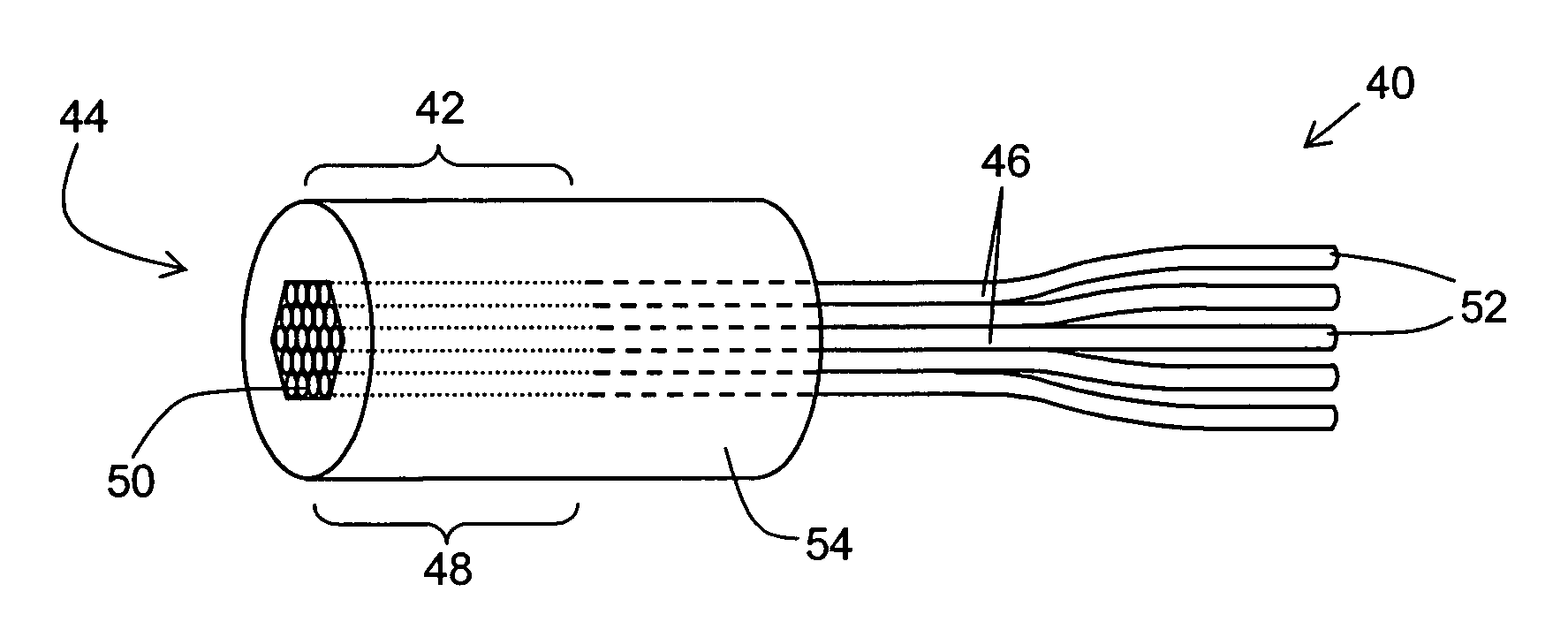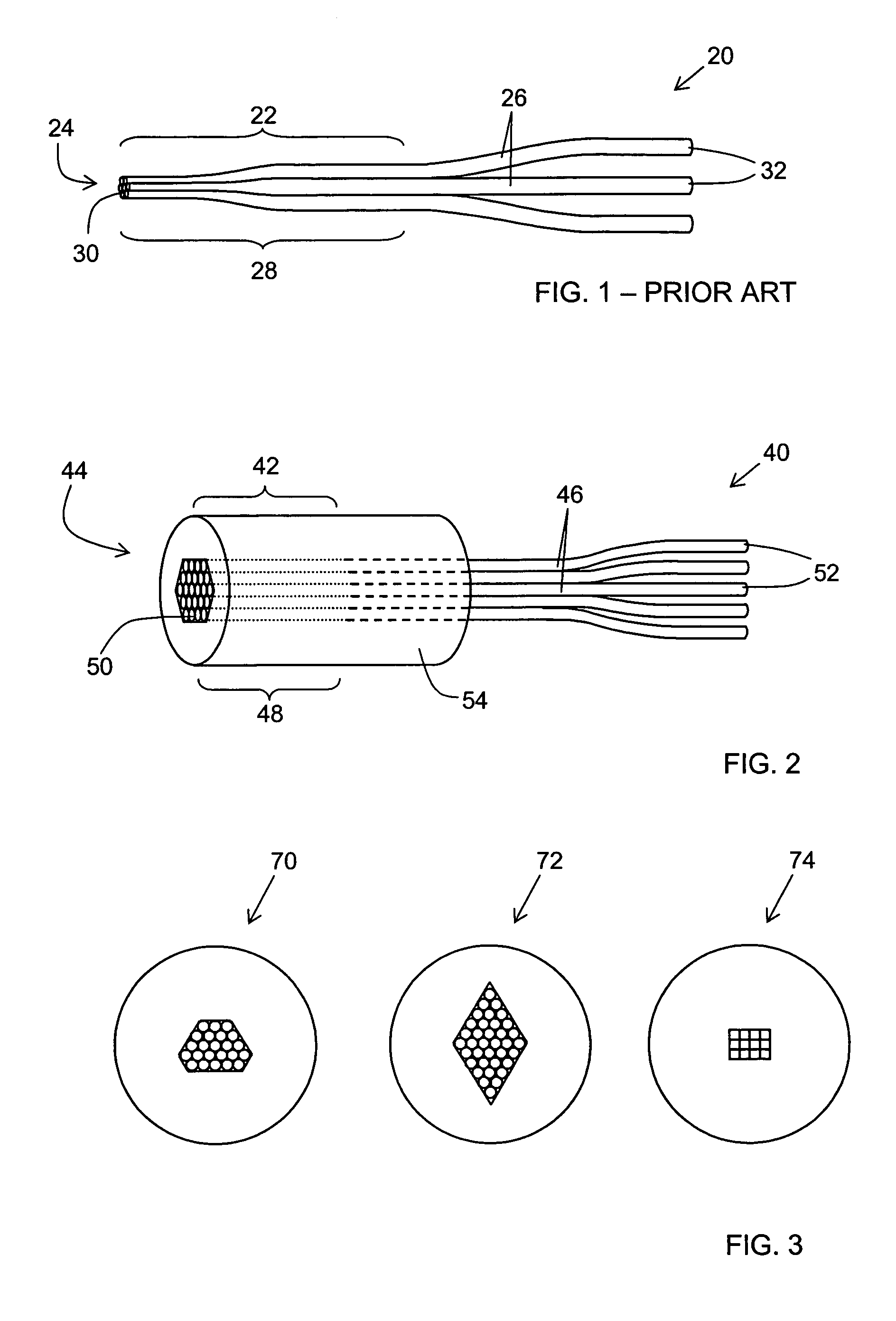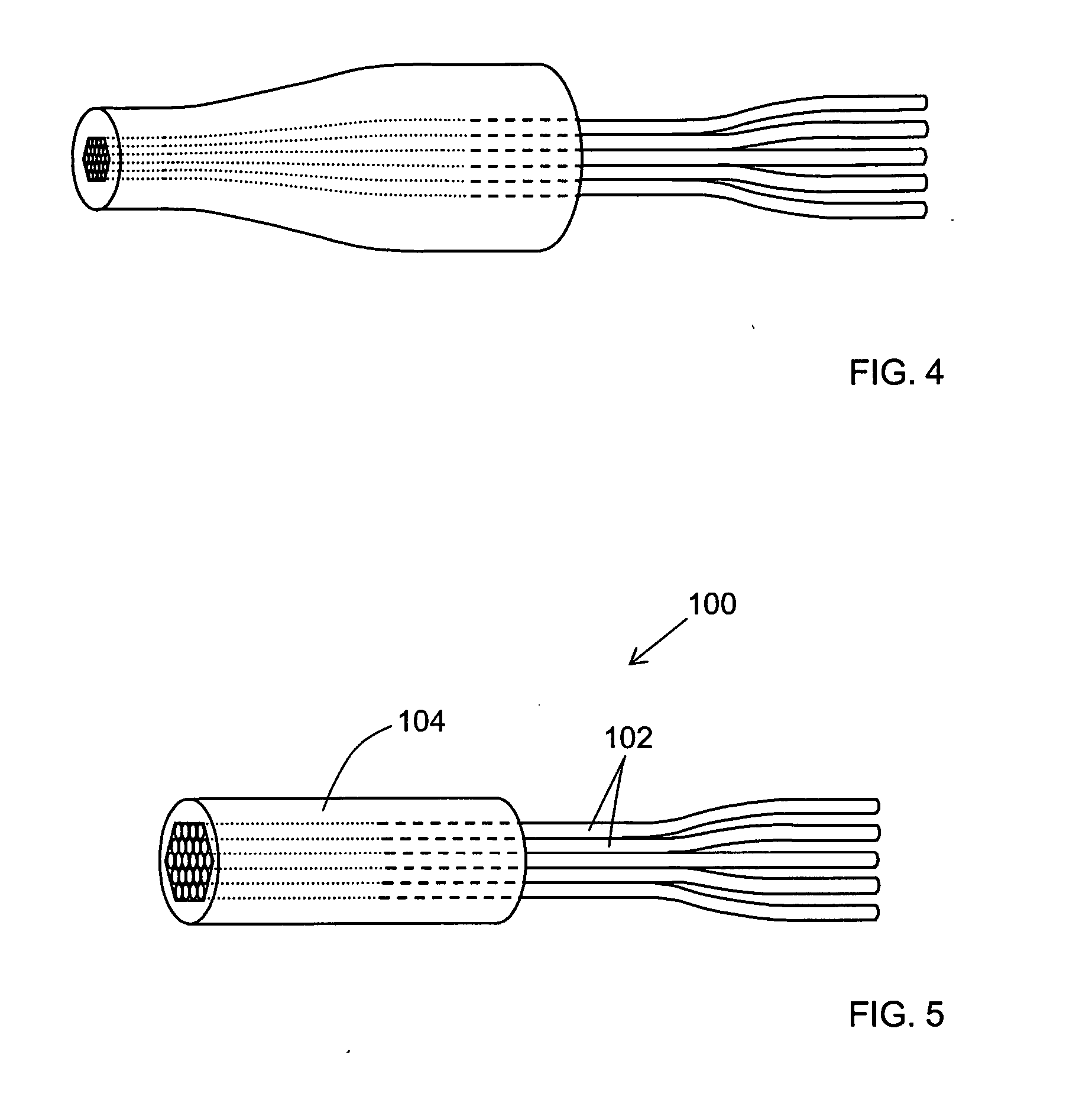Fiber bundles and methods of making fiber bundles
a fiber bundle and bundle technology, applied in the direction of bundled fibre light guides, instruments, optical elements, etc., can solve the problems of physical fraying of the fiber bundle, affecting the light affecting the transmission of the beam, so as to achieve the effect of convenient fixture in the devi
- Summary
- Abstract
- Description
- Claims
- Application Information
AI Technical Summary
Benefits of technology
Problems solved by technology
Method used
Image
Examples
example
[0059] The present invention is further described by the following non-limiting example.
[0060] Twenty three coated multimode optical fibers (made from silica glass with dopants to control refractive index) were inserted into a cellular arrangement tool (about 15 mm wide) made using the stack-and-draw methods used to make photonic band gap fibers and having the irregular hexagonal geometry of fused fiber bundle 70 in FIG. 3, with cells large enough (˜270 μm) to accommodate the coated optical fibers. The cellular arrangement tool was mounted on a movable stage (with possible adjustments in three linear dimensions and rotationally around the vertical axis). The glass tube (silica with about 6% boron dopant) had an inner bore with the irregular hexagonal geometry, just large enough to fit the 23 optical fibers (with a tolerance of ˜1% or less), and was also mounted on a movable stage. The glass tube about 50 mm long, and was beveled at an angle of about 45°, and the cellular alignment ...
PUM
| Property | Measurement | Unit |
|---|---|---|
| refractive index | aaaaa | aaaaa |
| cross-sectional area | aaaaa | aaaaa |
| bevel angle | aaaaa | aaaaa |
Abstract
Description
Claims
Application Information
 Login to View More
Login to View More - R&D
- Intellectual Property
- Life Sciences
- Materials
- Tech Scout
- Unparalleled Data Quality
- Higher Quality Content
- 60% Fewer Hallucinations
Browse by: Latest US Patents, China's latest patents, Technical Efficacy Thesaurus, Application Domain, Technology Topic, Popular Technical Reports.
© 2025 PatSnap. All rights reserved.Legal|Privacy policy|Modern Slavery Act Transparency Statement|Sitemap|About US| Contact US: help@patsnap.com



